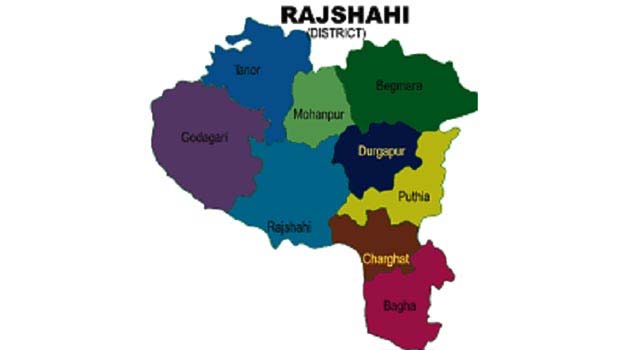Early marriage, stigma still villains to hinder female education

Despite efforts of the government and non-governmental organisations to expedite the education for female children, early marriage (child marriage) still remained the chief the villain in rural areas to hinder female education in greater Rajshahi districts of Rajshahi, Naogaon, Natore and Chapainawabganj.
A survey conducted among several co-education high school, girls school and primary schools under Godagari upazila and under Katakhali municipal area of Rajshahi, at Gurudspur upazila in Natore, at Sapahar of Nagaon and at Shibganj in Chapainawabganj has shown that due to poverty, social stigma and uncertainty about jobs even after getting an education, many guardians of the girl students prefer to marry their children at an early age.
Not only the female children but also the male children are discouraged to study even up to secondary level by the guardians since they think their young children as a money maker as a day labourer or as a farmhand. Insecurity about the job after finishing study is also the main cause that the guardians are reluctant to send their children to schools.
Moreover, students living at the isolated char-villages across the river Padma could not study further due to absence of educational institutions offering higher studies there.
In most cases, student of char villages, males or females, have to traverse a long, sandy way or to travel by boat to reach their schools. The char schools being situated in far, isolated villages, many students, especially girls, are not encouraged to study.
Moreover, being situated far from the mainland, the people of char-villages are relatively less conscious about the value of education.
Also, no teacher is willing to be deputed at the char-schools and live there. Even, the teacher whose house is at the char-village, are reluctant to work at their char schools.
Sheikh Mohammad A Quddus, Assistant Head Master of Premtali Girls School under Godagari upazila informed, there are no institutional problems for the students which can hinder their studies. He informed marriage at an early age of girls was one of the major obstacles for the continuation of studies.
Arefa Khatun, a peon of the school informed, she was forced to marry her 13-year old daughter Shampa Khatun while she was studying in class eight.
Her father Sabiar Rahman forced her to marry with an elderly person Al-Amin of Siala village under Godagari upazila against payment of taka 60,000 dowries, out of which taka 30,000 has been paid.
Like Shampa Khatun (15), an SSC candidate from the arts group was married months ago that is why she was unable to continue her study. Boby Sheal (14) of the same school was married while she was in class eight.
Seema Khatun (13), a student of class seven of Maskatadighi Bohumukhi Karigari High School under Kanatakhali Municipality was recently married to a 35-year-old man. Police were informed to shelve the marriage.
Being pressed by police, the marriage was halted for about a month but she was married to the same man secretly.
Head Master of Shukbasia High School under Godagari upazila said the dishonest marriage registrar and the advocates used to marry the minor-aged girls by procuring false birth/ age certificate from the union Parishad or ward commissioner's office.
He said, the marriage of school reading girls can easily be stopped if the government asked the marriage registrars or the advocates to use the student's school registration card which is done at class nine by the Education Board, there will be no chance for any child marriage.
Sheikh Mohammad Quddus further said, to stop the early marriage, the stipend of girl students should be further enhanced, the dowry system should be abolished, the guardians should be conscious and the school registration should be strictly maintained for identifying the age of any minor girl and furthermore, action should be taken against dishonest marriage registrars and advocates.
Upazila Education Officer of Godagari informed, in case of participation of sports, both the females and males got an equal chance at the school levels. Every one spontaneously participates in sports events. In almost every government and even non-government schools, there are separate toilets.
He informed the percentage of female teachers at the primary schools was about 70 per cent.
He informed, there are some specific areas like Char Asariadaha union of Godagari where the rate of early marriage is higher and the ratio of female education is very low.
The schools being situated at an isolated area, the students have to traverse a long way and being located far away from the mainland, people of those char villages are not conscious enough about the value of education.
He informed the teachers living at the mainland are reluctant to work at the char schools. As a result, there is always shortages of the good and required number of teachers there. He informed, there are no separate common rooms in many schools.
The quota for the female teachers are being maintained strictly in all Upazilas and city schools and rules of female scholarships are being maintained properly.
He, however, said there was the participation of females at the primary school managing committee but the number is very small at the secondary level.
No objectionable word is used against any girl student by any teacher except one at Godagari upazila where the teacher was transferred to a char village as punishment.
There were opportunities for students from class eight to class ten of learning reproductive health and there was no problem of eve-teasing at Godagari upazila and at the Kantakhali Municipal area. Female participation is less in any training and there is no balance of gender equality in the educational curriculum.





